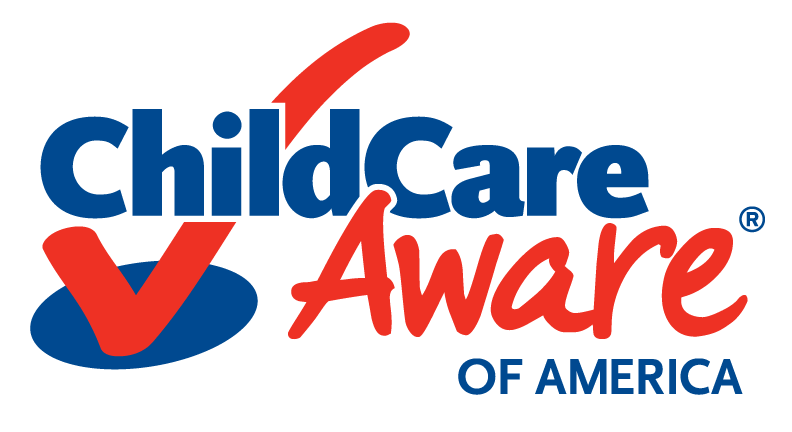

Home-based child care has always been and remains an important and vital component of parental choice in child care throughout the nation. Families may choose home-based care (licensed Family Child Care or care provided by family, friends, or neighbors) because it fits their desire for care in a home-like setting that meets their cultures, backgrounds, and values.
However, the past decade has seen a drop in the number of home-based providers. This decline has been the result of many factors, including low profit margins, an aging workforce, and barriers to accessing resources and support systems that increase business stability and program quality. This decline was exacerbated by the COVID-19 pandemic, which resulted in unprecedented upheaval across the child care community. Between December 2019 and March 2021 6,957 Licensed Family Child Care (FCC) Programs closed, creating hardship for families, especially for those parents who work nontraditional hours, live in rural communities, have infants and toddlers, or who do not speak English as their primary language. Low-income families and vulnerable populations are the most affected by the lack of available home-based child care. Parents who already had limited options for affordable, high quality child care before the pandemic are facing even fewer options today.
In this age of unprecedented change and its impact on child care, it is imperative for us to examine what approaches might best meet the changing child care landscape and ensure that quality child care remains accessible, affordable, and available for all families who need care. We must also examine the impact this time of change has had on the workforce. Years of low wages and lack of benefits,
followed by layoffs due to COVID19, have resulted in severe staffing shortages for child care programs. Child Care Aware of America recently PUBLISH a report entitled Demanding Change, Repairing Our Child Care System, shared that 83% of minority owned programs and 88% of programs serving families that need subsidies report staffing shortages, and approximately 7,000 home-based providers have closed permanently since the pandemic began.
As home-based providers continue to offer care and support to children and their families it is imperative to examine who is supporting providers, especially in this time of crisis. Home-based providers report that they feel less supported and respected, while facing more stress than ever before. Research shows that increased stress due to the COVID-19 pandemic was associated with child care providers’ reduced confidence in meeting child and family needs during the pandemic, and worse mental health for providers. Providers have also reported anxiety associated with the pandemic that is tied to their confidence in implementing COVID protocols and business sustainability. Home-Based Child Care providers are asking why they should stay open when working at the local fast-food restaurant offers more pay as well as stable benefits.
What promising practices help to support home-based providers and address the workforce issues plaguing the field today? Issues such as burn out, lack of appropriate professional development, low wages, and lack of benefits. There is a dire need to identify and adopt strategies for recruiting, supporting, and retaining home-based providers to enter and stay in the field. One of the most recent and important quality improvement approaches to address these questions is that of Staffed Family Child Care Networks (SFCCN).
What are Staffed Family Child Care Networks?
Though there are various models of network services which may offer an array of support, SFCCN are defined as organizations that offer home-based child care (HBCC) providers a menu of quality improvement services and supports including technical assistance and professional development delivered by a paid staff member. These SFCCN may also offer occasions for providers to develop connections with their peers as well as ongoing relationships with a professional coordinator or family child care specialist, helping to relieve the feelings of isolation often reported by home-based child care providers. Different agencies and programs may operate as SFCCN such as community, city, regional, or state-run organizations. Many Child Care Resource and Referral organizations offer network services in their role of supporting home-based child care within their service areas.
Challenges facing Home-based child care:
- Aging workforce
-
Few incentives for new child care providers to enter the field.
-
Lack of equitable access to resources and professional learning opportunities
-
Underrepresented in national and state child care policy
-
Often operating alone or with small staffs
-
Often lacking support systems
-
Operating on low wages
BENEFITS AND OPPORTUNITIES OFFERED BY SFCCN
In 2016, the federal Office of Child Care highlighted family child care networks as a quality improvement strategy for helping HBCC providers comply with the 2014 federal CCDBG standards for improving quality. SFCCN can provide many quality supports. These networks can be especially supportive when based in local communities, with staff who specialize in home-based child care and who understand the local culture and, when possible, speak the same language. SFCCN offer the following benefits and opportunities for home-based providers:
- Targeted professional development specific to home-based child care
- Referrals for families
- Assistance navigating regulations, quality initiatives, and licensing
- Opportunities for providers to share and learn from each other
- Support for operations and business practices
- Data collection support for quality initiatives and state requirements
- Shared services support to home-based child care programs to lower overall program costs, which might include, enrollment support, fee collections, marketing, and participation in the Child and Adult Care Food Program (CACFP)
- Start-up and grant writing support
- Assistance in navigating the licensing and subsidy system
- Connecting providers to technology and IT support
- Tax preparation assistance
- Accreditation support
- Scholarships and grants for continuing education
According to Home Grown, a national collaborative of funders committed to improving the quality of and access to home-based child care, SFCCN are positioned to tackle the big issues facing our home-based child care sector: building supply, improving quality, and retaining existing high quality home-based business operators.
SFCCN and the Home-based Workforce:
With the challenges of an aging home-based workforce at or near retirement and with the closure of home-based programs tied to the pandemic, the result is a noticeable and substantial loss of years of experience and expertise in the field. This has had a devastating impact on children, families, and the workforce due to loss of quality learning opportunities, relationships, and economic stability. To continue as a viable choice for families, it is important that investments by local, state, and regional entities and organizations be made to recruit and retain a new cadre of younger providers. The field needs to appeal to a younger generation’s way of conducting business. The use of technology to reach families, connect with each other, take care of business tasks effectively, and access professional development must appeal to a new and technologically savvy group. The use of the internet and social media for both supply and demand in home-based child care will require new data sets and innovative and allowable approaches for providers and families.
SFCCN have the ability to connect home-based providers to each other through technology and social media platforms. Isolation and lack of work relationships are concerns reported by home-based providers, which were exacerbated by the pandemic. SFCCN offer a safe space for home-based providers to share concerns, connect with others about issues, strategize to solve common problems, and access supportive relationships. This has led home-based child care to feeling less isolated and alone during times of crisis. SFCCN can be that supportive connection for peer interactions and relationship building through use of technology as well as face to face opportunities.
SFFCN that offer business automation support (technology to take manual labor out of day-to-day business processes) takes the burden from providers who often spend hours taking care of the business end of the work after long days of caring for children. This frees up home-based providers to care for themselves and their families and enables them to offer more quality care for children.
These are only a few offerings that SFCCN may extend to the home-based workforce. Look for Blog #2 coming soon in the SFCCN series which will focus on SFCCN as an approach to address the recruitment and retention of home-based providers and offer promising practices for the field.


